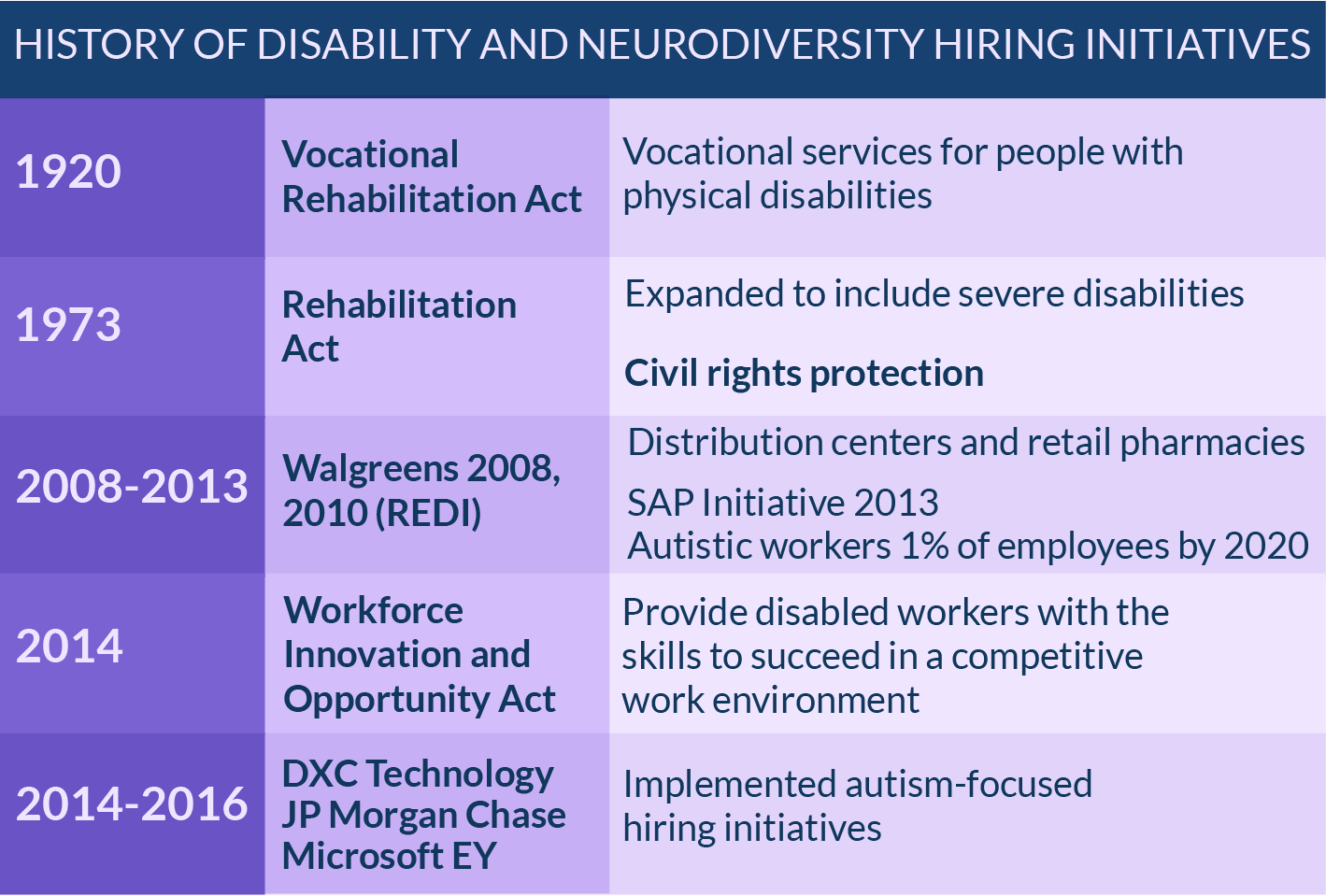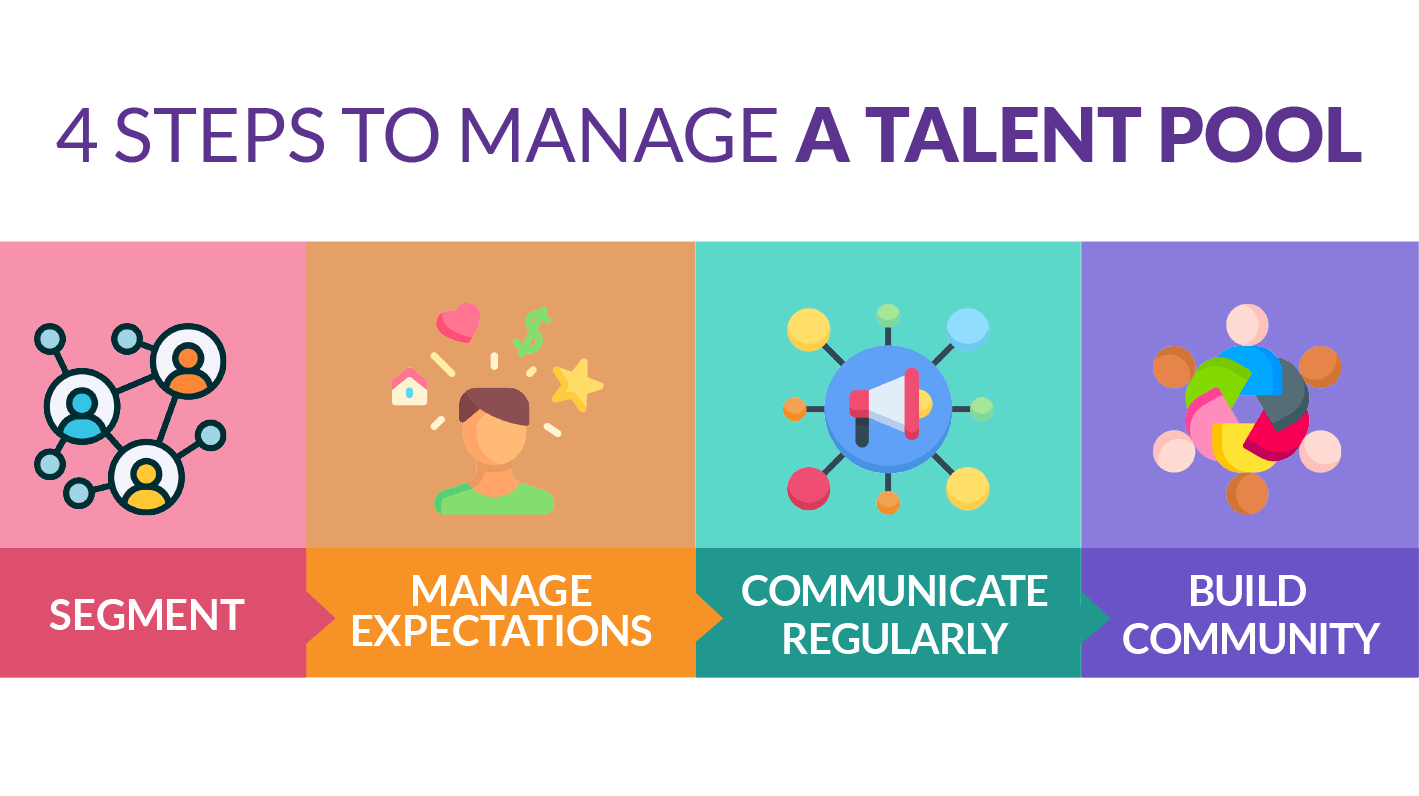5 Ways to Promote Neurodiversity in the Workplace
Neurodiversity in the workplace is the key to unlocking hidden talents within your team. It celebrates the inherent value of diverse neurological profiles.
The purpose of the blogs is to understand the,
- Concept of Neurodiversity
- Benefits of having a neurodivergent workforce in the workplace
- Importance of creating a supportive and inclusive workplace culture that celebrates the unique strengths and contributions of all individuals, irrespective of their neurocognitive profiles.
In this compelling blog, we present 10 powerful ways to embrace neurodiversity in the workplace and offer you a competitive advantage. So, let's begin;
What is Neurodiversity?
Neurodiversity in the workplace refers to the acceptance and inclusion of individuals with diverse neurological profiles.
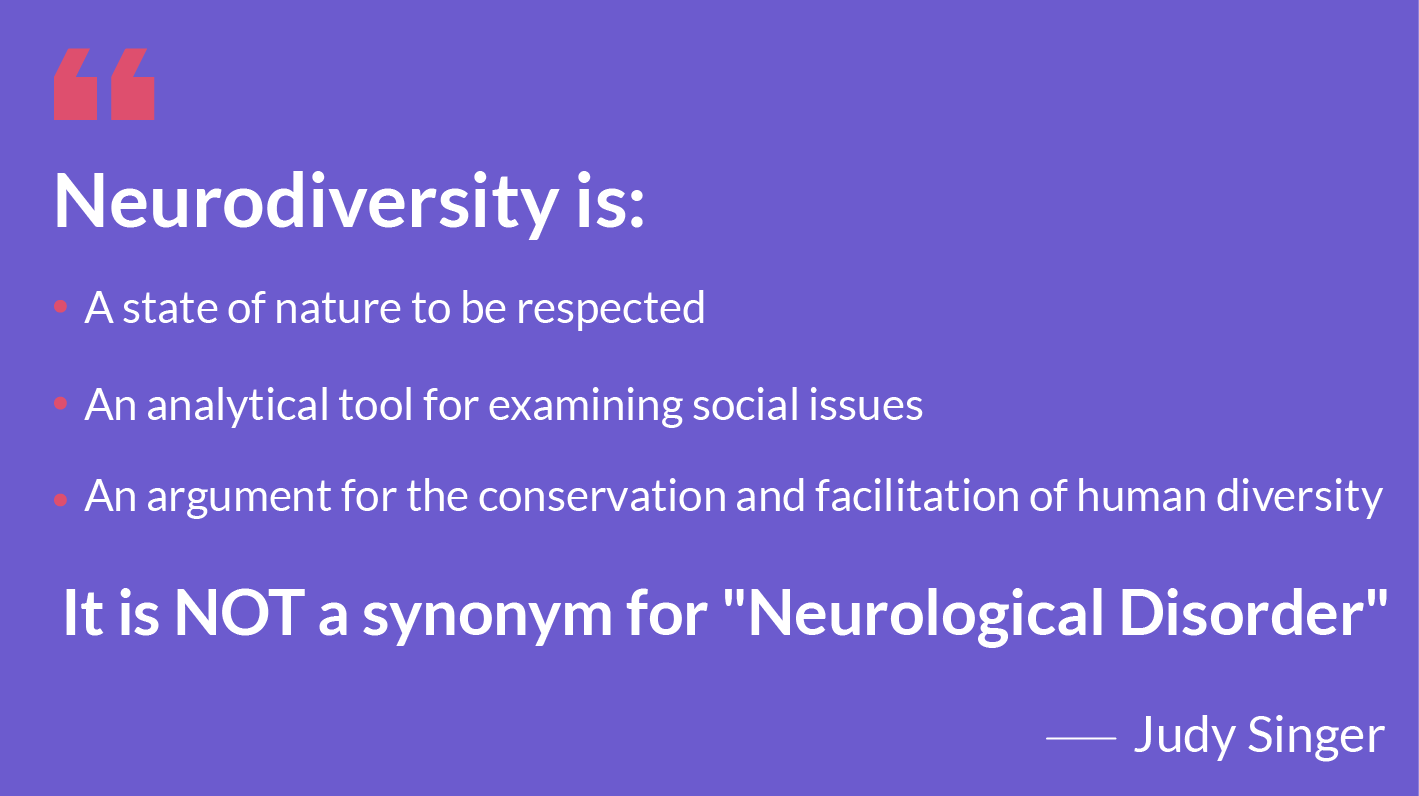
It recognizes and values the natural variations in brain functioning and embraces the idea that neurological differences, such as autism, ADHD, dyslexia, and others, are a normal part of human diversity rather than deficits or disorders.
Neurodiversity may be every bit as crucial for the human race as biodiversity is for life in general. Who can say what form of wiring will be best at any given moment?”
– Harvey Blume, The Atlantic, 1998
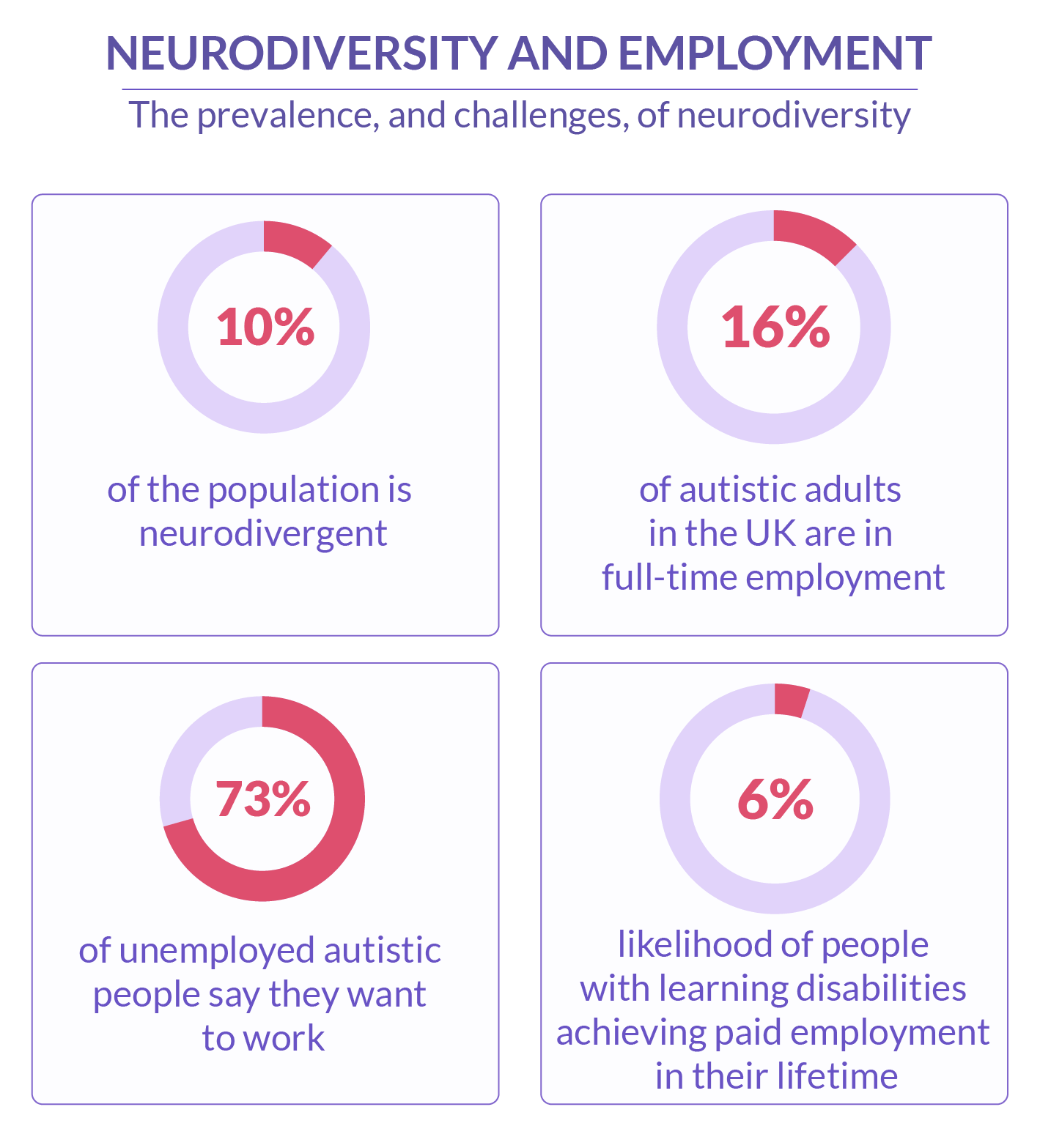
Neurodivergent people often have unique strengths and talents that can benefit the workplace. For example;
- People with ASD may be highly detail-oriented and have excellent problem-solving skills.
- People with ADHD may be creative and have a lot of energy.
- And people with dyslexia may be good at seeing patterns and have strong verbal skills.
According to the Harvard Health Publishing, Neurodiversity is "the idea that people perceive and interact with the world in various ways, that there is no one 'right' way to think, learn, or behave, and that differences are not considered deficits.
Did you know?
According to a report from Forbes featured in the Financial Times, people with Autism at work demonstrated higher productivity levels. They made fewer errors compared to neurotypical employees. The study revealed a significant boost in performance, with productivity ranging from 90% to 140% higher among neurodivergent individuals.
Neurodiversity in the Workplace: History
The roots of the Neurodiversity Movement can be traced back to the emergence of the Autistic Rights Movement during the 1990s.
In 1998, Judy Singer, an autistic Australian sociologist, introduced the term "neurodiversity," which gained rapid traction and further development within the autistic activist community.
Following this development, the Neurodiversity Movement came into being.
It refers to a social and philosophical movement that advocates for the recognition and acceptance of neurological differences as a natural part of human diversity.
Neurodiversity in the Workplace: Present
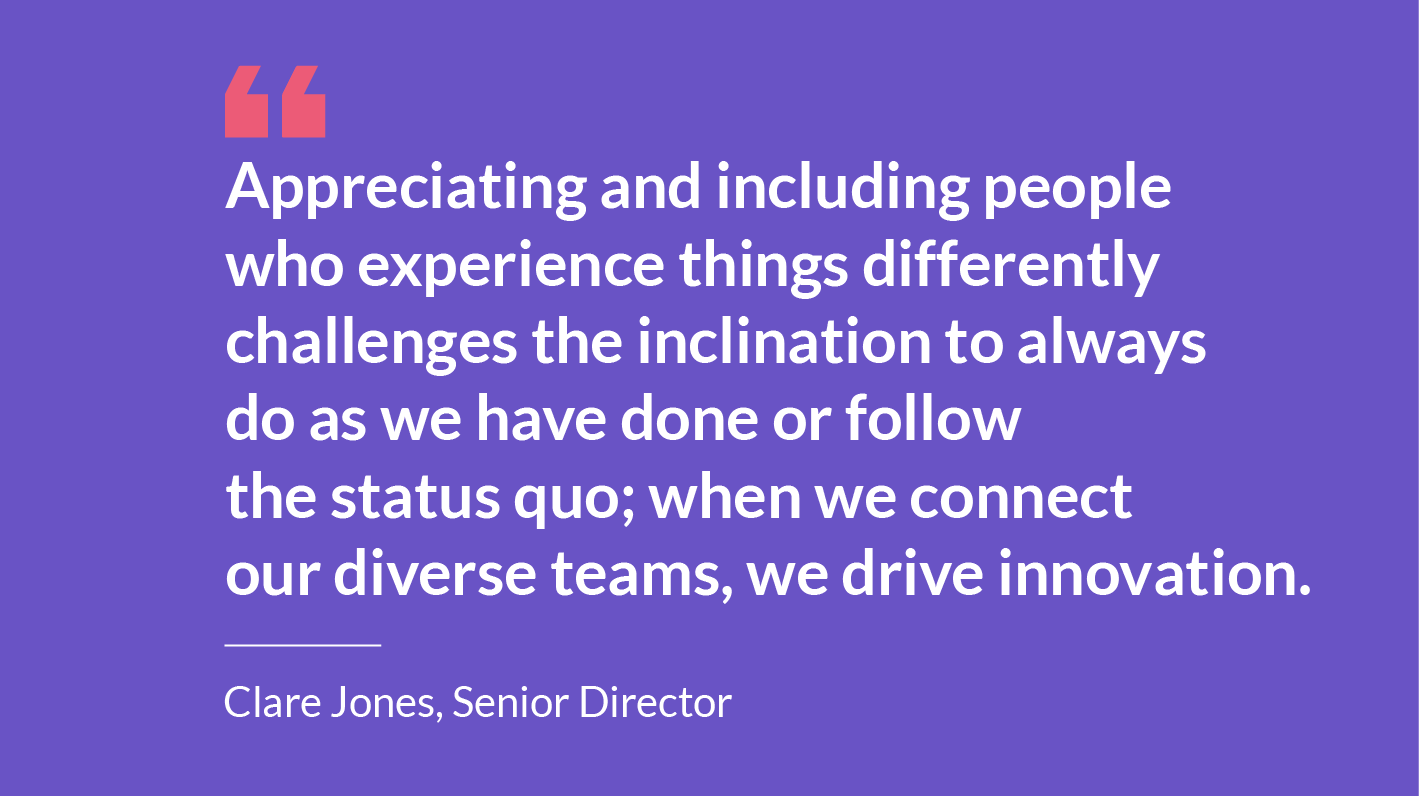
In 2015, Microsoft pioneered their way by launching an official program dedicated to the recruitment and inclusion of autistic workers. It was in fact one of the few companies to do so in the world of global hiring . Over the years, Microsoft has continually expanded and refined its approach to support and integrate autistic individuals into its workforce.
In recent years, the industry has made remarkable strides in accommodating neurodivergent employees, creating more inclusive and supportive work environments.
-
There has been a significant increase in awareness and understanding of neurodiversity, recognizing the valuable strengths and perspectives that neurodivergent individuals bring.
-
Companies have revamped their recruitment and hiring processes to be more inclusive, implementing alternative assessment methods and considering diverse communication styles during interviews.
-
Many companies now genuinely celebrate Neurodiversity Week, a dedicated time to recognize and embrace the unique perspectives and contributions of neurodivergent individuals in the workplace.
This year Neurodiversity week will be celebrated between Mar 13-19, 2023. This dedicated week serves as a platform for raising awareness, fostering acceptance, and promoting inclusivity for individuals with diverse neurological conditions. Throughout Neurodiversity Week, various events, activities, and initiatives are organized to educate the public, challenge stereotypes, and advocate for the rights and well-being of neurodivergent individuals.
- Organizations are actively providing reasonable accommodations tailored to the needs of neurodivergent employees, such as flexible work arrangements, sensory-friendly workspaces, and assistive technologies.
According to the report by Society for Human Resource Management (SHRM) employee benefits survey 2021, 17% of U.S. employers offer sensory rooms to their employees. This number will likely increase in the coming years as more companies become aware of the benefits of providing these spaces for their neurodivergent employees.
-
Training programs have been introduced to educate managers and employees about neurodiversity, fostering a culture of acceptance and effective communication.
-
Support networks and mentorship programs specifically designed for neurodivergent employees have been established, providing a sense of community and opportunities for personal growth.
Leading companies, including Dell Technologies, Deloitte, IBM, JPMorgan Chase, and UBS, have actively embraced neurodiversity programs. These organizations have sought inspiration and guidance from established neurodiversity initiatives at companies like SAP, HPE, and Specialisterne, which pioneered such programs. They have also engaged with industry peers at Microsoft, Willis Towers Watson, and EY to enrich their understanding further.
Benefits of Having a Neurodivergent Workforce
Embracing neurodiversity in the workplace offers a multitude of advantages that can propel organizations to new heights.
Neurodivergent individuals bring unique perspectives, skills, and talents that can contribute to the success and innovation of a company.
According to the Future of Jobs Report by the World Economic Forum, the skills exhibited by sensitive strivers, including critical thinking, problem-solving, self-management, teamwork, and communication, will be highly sought-after by 2025. The report highlights the increasing importance of these skills in the evolving job market, emphasizing their relevance for future employment opportunities.
So, here are a few key benefits of having a neurodivergent group,
1. Loyalty
Neurodivergent individuals who feel supported and understood by their employers are more likely to develop a sense of commitment & loyalty to the organization.
They may also appreciate the opportunities for growth, professional development, and career advancement that a supportive workplace can provide.
According to report by training industry, employers who have opened their doors to a neurodiverse workforce have found that autistic employees have a retention rate upward of 90%.
2. Diverse Perspectives and Problem-solving
Neurodivergent individuals often have unique thinking patterns and perspectives, allowing them to approach problems and challenges in innovative and creative ways.
Their different cognitive styles can contribute fresh ideas and alternative solutions that may not have been considered before.
In 2020, McKinsey, a global management consulting firm, conducted a study reaffirming the strong link between diversity and business performance, specifically in terms of profitability and productivity. The report revealed that companies ranking in the bottom quartile for gender and ethnic/cultural diversity were 29 percent less likely to achieve above-average profitability, placing them at a significant disadvantage compared to their more diverse competitors.
3. Improved Pattern Recognition
A neurodiverse workforce offers distinct advantages regarding pattern recognition, surpassing what a neurotypical crowd typically brings to the table.
Neurodivergent individuals exhibit remarkable attention to detail, enabling them to notice subtle patterns and discrepancies that might go unnoticed by others.
Their diverse problem-solving approaches and exceptional memory capabilities further enhance their capacity to identify complex patterns and uncover hidden connections.
By embracing neurodiversity and leveraging the unique strengths of neurodivergent individuals, businesses can significantly enhance their pattern recognition capabilities, leading to more comprehensive problem-solving, innovation, and competitive advantage.
According to a study by Harvard Business Review, neurodivergent conditions can confer special skills in pattern recognition, memory, or mathematics. When organizations implement a more inclusive hiring and onboarding process, neurodiverse candidates frequently surpass their neurotypical colleagues in performance.
4. Better DE&I
Integrating a neurodivergent workforce is a critical step toward achieving better diversity, equity, and inclusion (DE&I) within organizations. By actively embracing and accommodating individuals with cognitive differences, you can break down barriers and open doors to an inclusive workplace. Neurodiversity inclusion brings unique perspectives and strengths, challenging traditional norms and fostering innovation.
As per a study, although the global market for diversity, equity, and inclusion is projected to grow to a staggering $28.9 billion by 2030, most DEI programs overlook neurodiversity. Despite estimates that 15% to 20% of the global population is neurodivergent, only 1 in 10 organizations specifically includes neurodiversity within DEI programs.
By valuing and leveraging their skills, you can address the stigma surrounding cognitive differences and demonstrate a commitment to equal opportunity and inclusion.
Creating a workplace that embraces neurodiversity sends a powerful message of acceptance, dismantling biases, and promoting a culture of understanding and support.
5. Wide Talent Pool
When organizations support neurodiversity, they tap into a vast and untapped pool of exceptional talent, unlocking endless possibilities for growth and innovation.
Neurodivergent individuals possess unique strengths and perspectives that can revolutionize traditional approaches and problem-solving methods.
By broadening the talent pool to include neurodiversity, organizations gain access to individuals with remarkable attention to detail, pattern recognition abilities, and out-of-the-box thinking.
We encourage companies to let neurodiverse talent climb the corporate tree rather than a corporate ladder - meaning promotion into positions other than standard management roles, and ‘job tailoring’ where the job is designed to fit the person. These adaptations allow neurodiverse people to flourish.
— Rachel Morgan-Trimmer, Consultant at Sparkle Class
By accepting neurodiversity, we transcend the confines of conventional hiring practices. In doing so, we unlock a world of untapped potential, fostering a workforce that is diverse, dynamic, and ready to thrive in the face of any challenge.
5 Ways to Achieve Neurodiversity in the Workplace
1. Improve Hiring Practices:
Improving hiring practices and being aware of unconcisious bias while recruitment will make way for neurodivergent individuals to strive in the work environment. This will result in:
- A more diverse and inclusive workforce, boosting creativity, innovation, and problem-solving skills.
- Reducing turnover and absenteeism and improve employee satisfaction and productivity.
For neurodivergent individuals, hiring practices should be optimistic.
It can make it easier to find and get a job that is a good fit for their skills and abilities. It can also help reduce the stress and anxiety that can be associated with the job search process.
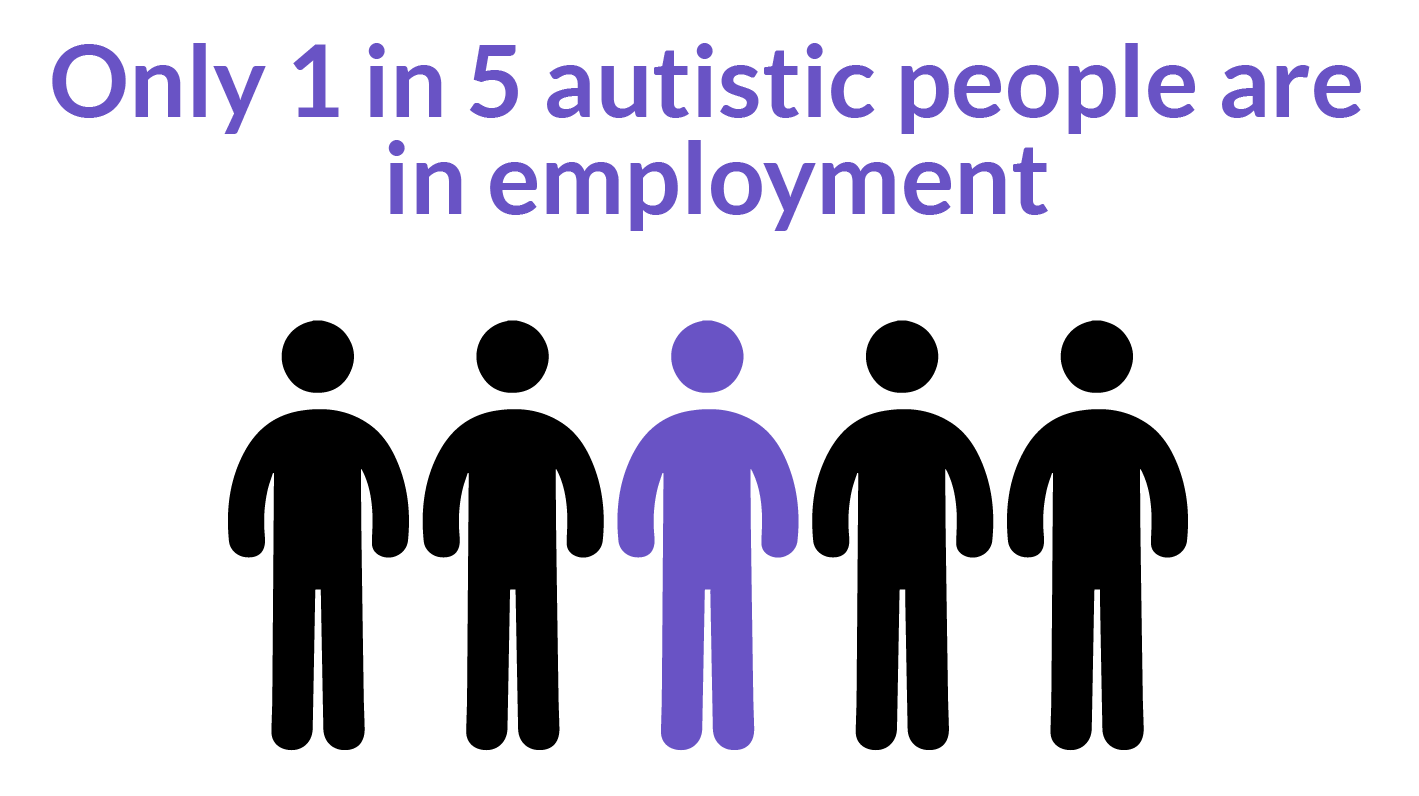
So, how can you flex the HR policies to accommodate a neurodivergent workforce?
There are many things that employers can do to improve their hiring practices for neurodivergent individuals. These include:
-
Rewriting job descriptions to be more inclusive
Job descriptions should be written in plain language and should avoid using jargon or acronyms that may be unfamiliar to neurodivergent individuals. They should also be clear about the skills and abilities required for the job and avoid making assumptions about the candidate's social skills or ability to work in a team environment. -
Using alternative assessment methods
Traditional interview and assessment methods may not be effective for neurodivergent individuals. Employers should consider using alternative methods, such as work samples or role-playing exercises, to assess candidates' skills and abilities. -
Providing accommodations during the interview process
Neurodivergent individuals may need accommodations during the interview process, such as extended time to complete tasks, a quiet location to interview, or the ability to bring a support person. Employers should be flexible and accommodating to the needs of the individual. -
Creating a supportive work environment
Once a neurodivergent individual is hired, creating a supportive work environment is important. This includes providing training to all employees on how to work with neurodivergent individuals and making sure that the workplace is accessible and accommodating to the needs of neurodivergent employees. -
Reaching out to NGOs
Collaboration and association with NGOs can improve the hiring of neurodivergent individuals significantly. NGOs can provide employers with resources and support, such as training, job placement assistance, and advocacy. They can also help to raise awareness of the benefits of hiring neurodivergent individuals.
Employers can create a more diverse and inclusive workplace that benefits everyone by improving their hiring practices.
2. Implement Neuro-sensory Friendly Spaces
Creating sensory safety spaces in the workplace is crucial to support the needs of neurodivergent individuals and ensure their comfort and productivity.
Neuro-sensory-friendly spaces are designed to be welcoming and comfortable for people with neurodivergent conditions and sensory processing disorders. These spaces can be found in various settings, including schools, businesses, and community centers.
Several things can be done to implement neuro-sensory-friendly spaces. Some of these include:
-
Controlled Environment
One of the most important things is to control the environment in the space. This includes things like the lighting, noise level, and temperature. -
Providing breaks
It is also important to provide sensory breaks for people in the space. This could involve having a quiet room where people can relax or providing fidget toys or other sensory items.
By implementing neuro-sensory-friendly spaces, you can create a more welcoming and comfortable environment for people with neurodivergent conditions. This can help to improve their ability to participate in activities and feel more comfortable in their surroundings.
Microsoft has an anechoic chamber at its headquarters in Redmond, Washington. The room is designed to provide a safe and supportive space for employees who need to take a break from work demands. The room has various sensory items, such as fidget toys, weighted blankets, and noise-canceling headphones.
3. Provide Proper Training
Building neurodiversity in the workplace through proper training requires a deliberate and inclusive approach.
It begins with embracing inclusion, creating a culture that values diverse perspectives and offering proper training to equip the mindset better. By raising awareness about neurodiversity, organizations can foster understanding and empathy among employees.
So, how to go about it?
- Equal opportunities for success are ensured by offering customized accommodations that cater to the specific needs of neurodiverse employees.
- An open dialogue should be encouraged, creating a safe space for employees to share their experiences and perspectives. Leadership training equips managers with the skills to lead diverse teams and emphasizes inclusivity and support for individual differences.
- Recognizing and celebrating the achievements of neurodiverse employees reinforces their value and contributes to a culture of appreciation.
In today's workplace, it's crucial to recognize and celebrate the achievements of neurodiverse employees, fostering a culture of appreciation and inclusivity.
While several online platforms enable fair recognition, Vantage Circle's Rewards Program: Vantage Rewards stands out with its comprehensive features like,
- customizable rewards
- diverse rewarding option
- manager gifting
- milestone celebrations
- gamification elements among others
Soft skills development should be an integral part of the training program, focusing on effective communication, active listening, teamwork, and empathy. This enables individuals to collaborate more effectively and promotes a harmonious work environment.
By following these steps, organizations can cultivate neurodiversity, develop vital soft skills, and create an inclusive workplace that benefits employees and the organization.
4. Address Stigma and Bias
Addressing stigma and bias is a critical step in establishing a neurodivergent-friendly office environment.
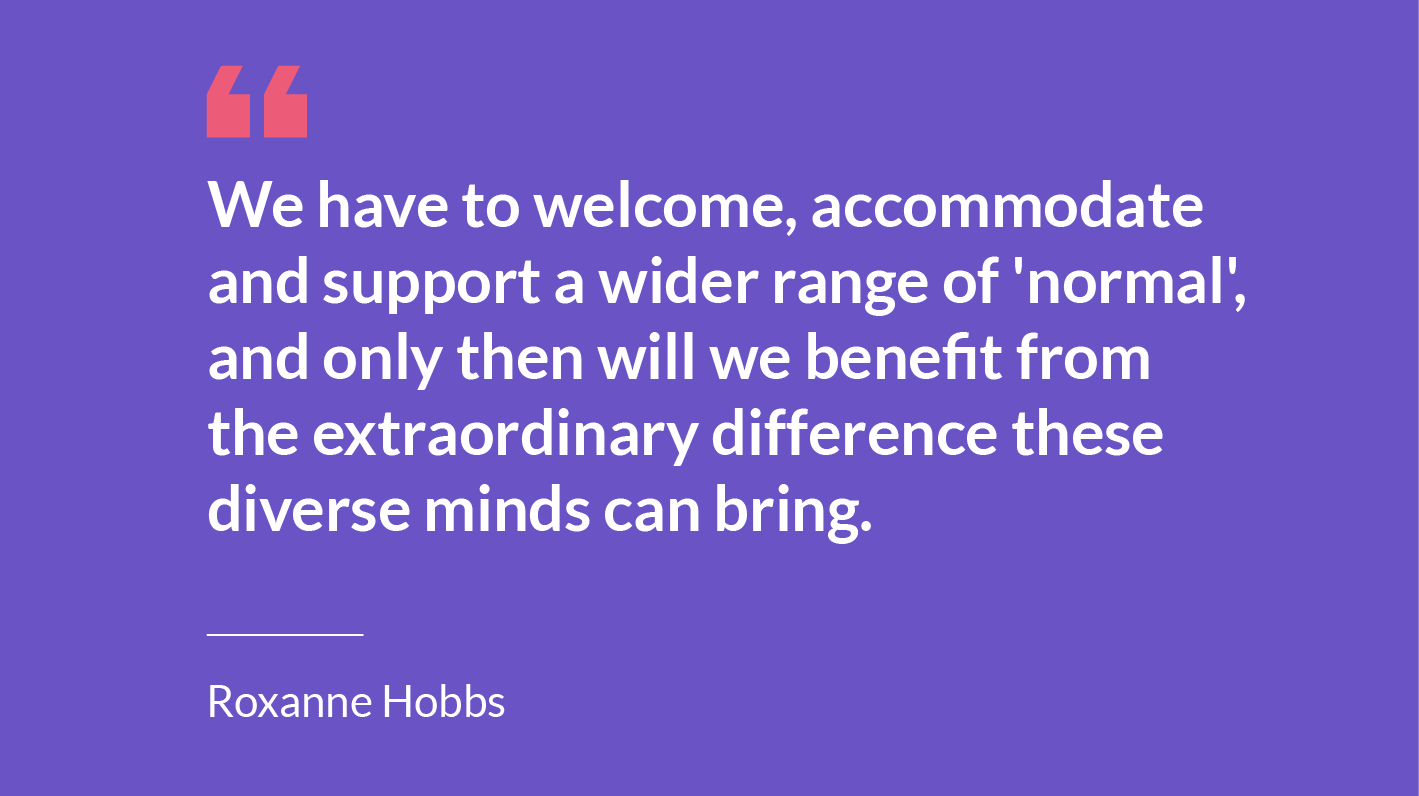
By actively challenging and dismantling conscious and unconscious bias, organizations create an inclusive culture that celebrates the diverse strengths and perspectives of neurodivergent employees.
This fosters an atmosphere where individuals feel valued and respected, enabling them to contribute their unique talents confidently.
So, how do we deal with it?
- Through education and awareness, organizations promote understanding and empathy, eradicating stereotypes and biases.
- By providing equal opportunities and a sense of belonging, organizations empower neurodivergent individuals to thrive, resulting in increased innovation, productivity, and overall well-being within the workplace.
- Implementing clear and comprehensive policies that explicitly prohibit discrimination, harassment, and bias based on neurodivergence. Communicate these policies effectively and ensure they are consistently enforced.
- Use of pulse surveys to gather your employee feedback towards sensitive issues is another successful way of handling biases in the workplace.
Nowadays, the landscape of employee feedback tools has expanded significantly, shifting more towards actioanble feedback. These online platforms have revolutionized the way feedback is collected, analyzed, and acted upon.
And that is where Vantage Pulse comes in that combines sentiment analysis, e-NPS based surveys, and machine learning algorithms.
With Vantage Pulse, your organization can proactively measure and address biases in the workplace, fostering a culture of diversity and inclusion. Harness the power of advanced analytics to drive meaningful change and unlock your true potential."
5. Extensive Reach outs to Employee Support Groups

Extensive reach outs to employee support groups (ERGs) are pivotal in establishing a neurodivergent culture in offices. Here's why and how it can be done effectively.
By actively engaging with employee support groups focused on neurodiversity, workplaces gain several advantages.
These groups provide a wealth of knowledge, resources, and live experiences related to neurodivergent individuals. By reaching out to them, offices can tap into this expertise to better understand the unique needs and challenges of neurodivergent employees.
64% of neurodivergent respondents believe their organization could do more to support neurodiversity in the workplace. 52% of neurotypical respondents felt the same.
So, how to achieve collaborations?
- Research and Identify Relevant Groups: Conduct thorough research to identify local and national employee support groups focusing on neurodiversity. Consider contacting disability organizations, advocacy groups, and online communities dedicated to neurodivergent individuals.
- Establish Partnerships: Initiate partnerships with employee support groups by establishing partnerships or affiliations. This can involve inviting guest speakers from these groups to conduct workshops or informational sessions or collaborating on initiatives that promote neurodiversity and inclusion.
- Active Engagement: Encourage employees to actively engage with the support groups by participating in events, sharing experiences, and accessing resources. Provide dedicated spaces or forums where employees can discuss and seek advice from their peers within the organization.
Today, many companies are inclining their policies and ethics toward hiring talented neurodivergent individuals.
Their innovative thinking and ability to solve complex issues, not to forget attention to detail, are attracting industry moguls looking out to hire exceptional talents.
Conclusion
At its core, the Neurodiversity in the workplace emphasizes the value of neurodivergent individuals and seeks to create a more inclusive society that respects and accommodates their unique strengths and challenges.
- It aims to shift the focus from trying to normalize or assimilate neurodivergent individuals to embracing their diverse perspectives, talents, and contributions.
- It promotes self-advocacy, empowerment, and the right of neurodivergent individuals to be recognized and supported in education, employment, healthcare, and social interactions.
Gone are the days when neurodivergent individuals were overlooked or deemed "different." Today, we stand on the precipice of a new era—one that celebrates the unique wiring of every brain and harnesses its exceptional abilities as a catalyst for success.
Frequently Asked Questions (FAQ)
1. How can we create a more inclusive work environment that celebrates neurodiversity?
Creating a more inclusive work environment starts with fostering a culture of acceptance, educating employees about neurodiversity, and promoting open communication. It is crucial to provide training to managers and colleagues, implement inclusive hiring practices, offer support networks, and promote a culture of respect and understanding.
2. Are there any legal protections or guidelines in place to support neurodivergent individuals in the workplace?
Depending on the jurisdiction, there may be legal protections in place to support neurodivergent individuals in the workplace. It is important for organizations to be aware of applicable laws and regulations related to disabilities, discrimination, and accommodations, such as the Americans with Disabilities Act (ADA) in the United States or the Equality Act in the United Kingdom, and ensure compliance to protect the rights of neurodivergent employees.
3. How can managers and supervisors effectively support the needs of their neurodivergent employees?
Supporting neurodivergent employees starts with open communication and individualized accommodations. Managers can actively listen to their employees' needs, engage in ongoing dialogue to identify any challenges or adjustments required, and work collaboratively to create tailored accommodations or support plans. Flexibility in work arrangements, providing clear instructions and feedback, and fostering a supportive and inclusive team environment can also contribute to effectively supporting neurodivergent employees.
4. How can I measure the impact and success of neurodiversity initiatives in my organization?
Measuring the impact of neurodiversity initiatives can involve collecting feedback from neurodivergent employees, conducting surveys or focus groups to gauge satisfaction and perceived inclusion, tracking key performance indicators related to productivity, collaboration, and employee retention, and regularly reviewing and analyzing data to assess the effectiveness of implemented strategies and make informed improvements.








